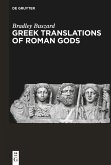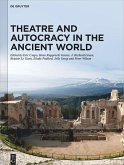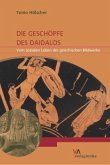Key aspects of philhellenism - political self-determination, freedom, beauty, individual greatness - originate in antiquity and present a complex reception history. The force of European philhellenism derives from ancient Roman idealizations, which have been drawn on by European movements since the Enlightenment. How is philhellenism able to transcend national, cultural and epochal limits? The articles collected in this volume deal with (1) the ancient conceptualization of philhellenism, (2) the actualization and politicization of the term at the time of the European Restoration (1815-30), and (3) the transformation of philhellenism into a pan-European movement. During the Greek struggle for independence the different receptions of philhellenism regain a common focus; philhellenism becomes an inextricable element in the creation of a pan-European identity and a starting point for the regeneration and modernization of Greece. - It is easy to criticize the tradition of philhellenism as being simplistic, naïve, and self-serving, but there is an irreducibly utopian element in later philhellenic idealizations of ancient Greece.
Hinweis: Dieser Artikel kann nur an eine deutsche Lieferadresse ausgeliefert werden.
Hinweis: Dieser Artikel kann nur an eine deutsche Lieferadresse ausgeliefert werden.








